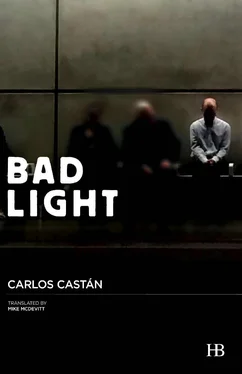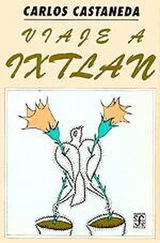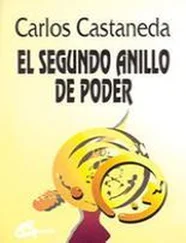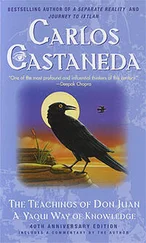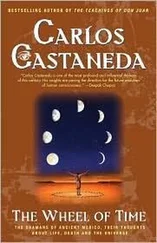Carlos Castán - Bad Light
Здесь есть возможность читать онлайн «Carlos Castán - Bad Light» весь текст электронной книги совершенно бесплатно (целиком полную версию без сокращений). В некоторых случаях можно слушать аудио, скачать через торрент в формате fb2 и присутствует краткое содержание. Год выпуска: 2016, Издательство: Hispabooks, Жанр: Современная проза, на английском языке. Описание произведения, (предисловие) а так же отзывы посетителей доступны на портале библиотеки ЛибКат.
- Название:Bad Light
- Автор:
- Издательство:Hispabooks
- Жанр:
- Год:2016
- ISBN:нет данных
- Рейтинг книги:5 / 5. Голосов: 1
-
Избранное:Добавить в избранное
- Отзывы:
-
Ваша оценка:
- 100
- 1
- 2
- 3
- 4
- 5
Bad Light: краткое содержание, описание и аннотация
Предлагаем к чтению аннотацию, описание, краткое содержание или предисловие (зависит от того, что написал сам автор книги «Bad Light»). Если вы не нашли необходимую информацию о книге — напишите в комментариях, мы постараемся отыскать её.
Carlos Castán
Bad Light
Bad Light — читать онлайн бесплатно полную книгу (весь текст) целиком
Ниже представлен текст книги, разбитый по страницам. Система сохранения места последней прочитанной страницы, позволяет с удобством читать онлайн бесплатно книгу «Bad Light», без необходимости каждый раз заново искать на чём Вы остановились. Поставьте закладку, и сможете в любой момент перейти на страницу, на которой закончили чтение.
Интервал:
Закладка:
And then there are the shelves housing movies and music, which also endeavor, more or less intentionally, to tell a life story. Almost every movie I ever saw in the art-house theaters on Sundays back in an age that now looks golden from my current decrepit state is there. Whether or not I actually liked those movies at the time, whether or not I ever even understood them, is neither here nor there; pick up a program from Cinestudio Griffith or El Regio from the early eighties, scan the titles, and you’ll discover that every movie, every single one, is on my shelves, see for yourself. And the same can be said for the singers who left their mark on moments of my life, the concerts that truly set my pulse racing, the songs that for a time became private anthems, for they seemed to speak about me or to understand me in a way that was beyond the humans that surrounded me. It’s all there, albeit jumbled in amongst other records I’ve barely listened to, though I thought I would when I bought them, perhaps because I harbored the secret intention of beginning, one day, to be someone else.
Surveying my shelves now, it seems to me that they bear witness to the story of a fraud and that they might at most bear witness to the depths of a being who doesn’t actually exist. I think that those crammed shelves speak less to who I am than to who I wanted to be. It strikes me that every collector, be they a consummate bibliophile or a teenager looking to assemble the complete output of their favorite band, has in mind, albeit in an ill-defined, generic, or prototypical sense, the idea of a visit that will one day be paid by an individual they have not yet met, someone to whom they will reveal that treasure trove of items gathered together over the years, not without a great deal of hardship and penny-pinching, (or, better still, who will see it for themselves, without the need to have it pointed out to them, and who will spring up from the couch in one single bound to take a closer look), and who will know how to appreciate it and will be able to spot there and then, thanks to all that stuff, the sense of a whole life, the identity of a man. Every library, no matter how personal, is arranged as if on display. It seeks out the other, it craves admiration, the simple recognition of a like-minded soul or a polar opposite. This is not altogether uncalculating, for it is, when all is said and done, a language. And as such, it may be heartfelt or duplicitous. One would first of all have to know, in each case, who is being addressed, who, for each of us, that blurry silhouette might be, that mysterious caller, always as unexpected as death itself, who will turn up one day and take final stock of our things, and will know who we are by tallying up what is here and what is missing, volumes and gaps, treasures and absences. For if not, then how come it’s impossible to get a wink of sleep if but a single volume is not where it should be and, in an enormous living room, crammed full of belongings, furniture, and volumes, the first thing that leaps out is the gap left behind by the book that isn’t there, the one, say, that was lent out and has yet to be returned? And there’s no need for a physical space to actually exist, since books have a way of huddling up next to one another, and doubling up, and lying sideways, filling the space up to the next shelf; the simple knowledge that that missing spine, with its color, its exact words, ought to be standing between another two books is enough to ensure your gaze is always drawn to that spot. The fraud I spoke of earlier lies in the fact that my library might not, as I have always thought, be the map of my soul. Yet it remains to be seen who I was hoping to fool, whether more or less mindful of this fact, over the course of so many years. Sometimes, when I give the matter some thought, I picture a woman, well into the early hours of morning, a glass in her hand, browsing my shelves. She wears her hair tied up and removes her raincoat to reveal a black dress that leaves her bare shoulders on display. She takes out a book now and then, leafs through it, then puts it back where she found it. She has her back to me and pays me no heed directly, though I wander over to her every now and then and softly kiss her back or the nape of her neck. I make the occasional remark on what she is looking at, but she doesn’t listen, she has no interest in anything I might now have to tell her. She searches for me among the spines of the books she lightly brushes with her fingers. She searches for me there and there alone. Which might explain why, without fully realizing it, I have spent my whole life working up to this future moment or this delirium of which I occasionally glimpse a faint image, with piano music and the rain beating down on the other side of the window. Other times, however, I think that the one who’s been duped is none other than myself, a more innocent, trusting side of me that revels in it all and takes comfort in the belief that he has managed to make something of his life, that he has built something.
It struck me that my dead friend’s apartment had made me look afresh at my own home. As if I had already begun leaving everything at the sole mercy of absence. The door firmly locked, the electricity cut off at the mains, the dust spreading out at its own pace, so like that of eternity, over all the silence of lifeless objects.
One day the investigators will come. They will search the apartment, suddenly emptying out the contents of upturned drawers on a table. They will unfold papers, poring over every photograph, every letter, newspaper clippings and bank statements and receipts for my most recent purchases. They will hold in their hands the objects that were first ours, back when you still dusted them down from time to time with a feather duster (your headscarf, your song. .), and then belonged to me and me alone, so mournfully, while all of a sudden becoming smaller and a little older, and that will from here on in belong to no one, fodder destined for the trash can or trinkets sold by the pound in the best case scenario — the multicolored dragon souvenir we bought in the Park Güell, the teapot from Fez, the half-rusted box of quince jelly from Puente Genil in which you kept the postcards we still received from time to time in those days, the sailboat with cracked masts, the miniature Chicago taxi cab. In their notebooks, they will jot down the words they deem important, almost everything, in fact, just in case; things turn up when you least expect it — what I thought on one day only, what I wrote without realizing, the date scribbled on the back of some theater program or movie ticket, the clues to a life, the half-erased traces of footsteps heading straight for an abyss without anyone yet being able to understand why.
One day the investigators will come. They will rush through the letters I took such time to write, the unfinished stories, the poems still full of crossings-out and minced words, cringe-worthy verses, coy observations. Their eyes will flit at great speed over the adjectives I pondered with care, their clumsy, latex-gloved fingers will in the end cause the ink to smudge, small blue clouds with traces of fingerprints slowly forming in the middle of the sheet of paper. One day the investigators will come, and they will discover what I never knew, the hidden reasons for my fears, the source of the storms, the night’s motives, they will know why I did what I did when I did it and will train their microscopes on the ice that at other times brought me to a standstill; they will barge their way into the forests I had no wish to roam and upturn the sacred, the delicate, the half-broken, everything that held itself upright as if by miracle. One day the investigators will come, and they will know who I loved.
11 (the boy among the pigeons)
In a cardboard box, I come across a black-and-white snapshot of myself cutting through some pigeons in a square, probably the Plaza del Pilar in Zaragoza, though it’s such a close-up image it might well be the Plaza Cataluña, in Barcelona. Whatever. I must be around four or five; I’ve never been much good at gauging children’s ages. It’s winter, judging from the coat I’m wearing buttoned up to the neck, though my legs, as was customary at that time, in my family, at least, were exposed to the elements no matter how cold it got. Either way, I can clearly recall that coat, which was in fact red, with its Eskimo hood, while the argyle socks and the badly buckled shoes also strike me as oddly familiar. Yet I cannot fully get my head around the fact that that boy is me. The word me blurs in and out of focus, I’m not sure I understand it. The sight of that boy arouses in me a tenderness I find hard to sustain. I look at that boy and my heart goes out to him.
Читать дальшеИнтервал:
Закладка:
Похожие книги на «Bad Light»
Представляем Вашему вниманию похожие книги на «Bad Light» списком для выбора. Мы отобрали схожую по названию и смыслу литературу в надежде предоставить читателям больше вариантов отыскать новые, интересные, ещё непрочитанные произведения.
Обсуждение, отзывы о книге «Bad Light» и просто собственные мнения читателей. Оставьте ваши комментарии, напишите, что Вы думаете о произведении, его смысле или главных героях. Укажите что конкретно понравилось, а что нет, и почему Вы так считаете.
